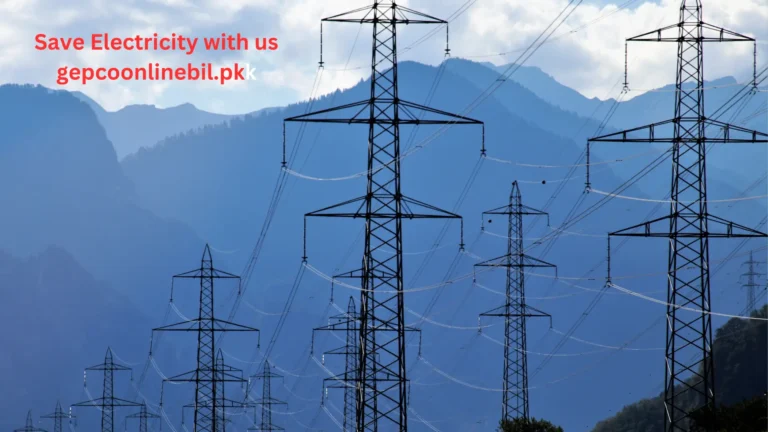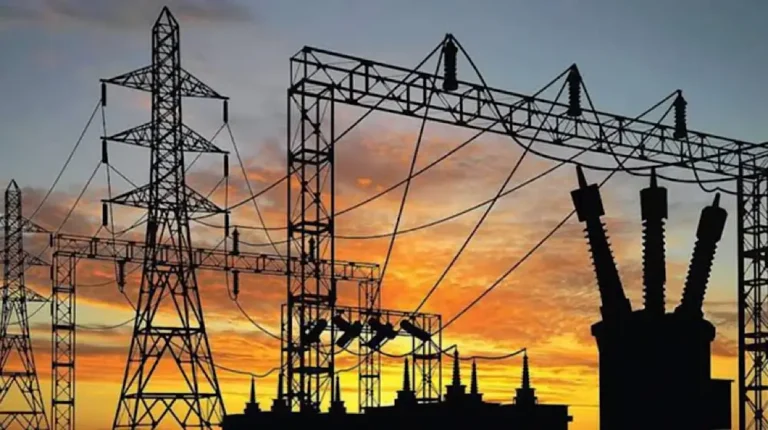Today Electricity GEPCO Unit Price: Increased in Budget 2025
The federal government of Pakistan has announced his budget 2025 and increased GEPCO Unit Prices and designated a significant portion of the budget for various public and private sectors. Specifically, Rs30 billion is set aside for the restoration of public buildings, and Rs40.5 billion is allocated for urban development, which includes Rs9.15 billion from foreign sources. In comparison, the energy sector has received a relatively smaller allocation of Rs7.5 billion.

Today Electricity GEPCO per Unit Rates
We divided into three part of per unit GEPCO latest rates. The following tables will clearly help you to understand the latest prices of electricity in GEPCO Region. Let’s take a deep dive!
Domestic Unit Prices
| Sr.# | Units | Unit Price Per (KWH) |
| 1 | Up to 50 Units (lifeline) | Rs. 7 |
| 2 | 51-100 Units (Lifeline) | Rs. 11.68 |
| 3 | 0- 100 Units | Rs. 15.75 |
| 4 | 101-200 Units | Rs. 18.07 |
GEPCO Unit Prices for Unprotected Customers
| Sr.# | Units | Unit Price Per (KWH) |
| 1 | 1-100) | Rs. 22 |
| 2 | 101-200 | Rs. 32 |
| 3 | 201-300 | Rs. 37 |
| 4 | 301-400 | Rs. 43 |
| 5 | 401-500 | Rs. 47 |
| 6 | 501-600 | Rs. 49 |
| 7 | 601-700 | Rs. 52 |
| 8 | Above 700 | Rs. 65 |
GEPCO Commercial Unit Prices
| Load Type | Price Per Unit |
| Less Than 5KW Connection | Rs.38.82 Per Unit |
| Less Than 5KW Connection | Rs.40.26 Per Unit |
Are you concerned about the rising GEPCO unit prices in 2025?
As an expert in electricity, I understand how these increases can impact your budget and daily life. Let’s break down what’s happening and why electricity prices in Pakistan, especially under NEPRA, are escalating rapidly. Electricity Bill Per Unit Rates by GEPCO Electricity prices in Pakistan are climbing at an alarming rate.
This surge is primarily due to the volatile currency rates and the high taxes imposed on fuel and petrol, influenced by the IMF bailout package.When the exchange rates get high they directely impect on the production nof electricityy costs and fule taxes elevate the overall strucute.
Why Are GEPCO Unit Prices So High?
The primary factor behind the rising electricity prices in Pakistan is the volatile currency exchange rates. As you know the Pakistani currency is going to be fluctuating day after day which is directly affecting the cost of importing fuel and other machenary for power generation. This dependence on imported resources makes the energy sector highly sensitive to changes in exchange rates, leading to increased costs. Another major contributor is the increased taxes on fuel and petrol, mandated by the IMF bailout package.
To stabilize the economy, the Pakistani government has had to raise taxes on these commodities, which directly increases the cost of electricity production and distribution. The Impact of Economic Crisis on GEPCO Unit Prices The IMF bailout package was crucial for Pakistan’s economic stability, but it came with stringent conditions, including higher taxes on fuel and petrol. Additionally, global oil price fluctuations have further impacted electricity production costs, as Pakistan’s energy sector relies heavily on fossil fuels.
Future Outlook for GEPCO Unit Prices
Navigating the current landscape of rising electricity prices is tough for both consumers and the government. High costs are putting a strain on household budgets, slowing down industrial growth, and creating obstacles to economic development.
The government must juggle the need for fiscal responsibility with the necessity of providing affordable and dependable electricity. Government Measures and Solutions To tackle these issues, the Pakistani government has rolled out several initiatives aimed at reducing the impact of higher electricity prices. These efforts include stabilizing the currency exchange rate, expanding the energy mix by investing in renewable energy sources, and finding ways to lower taxes on fuel and petroleum products.
Conclusion
The electricity unit rates in Pakistan for 2025 are shaped by a mix of factors such as currency exchange rate volatility and tax policies set by international financial bodies like the IMF.







